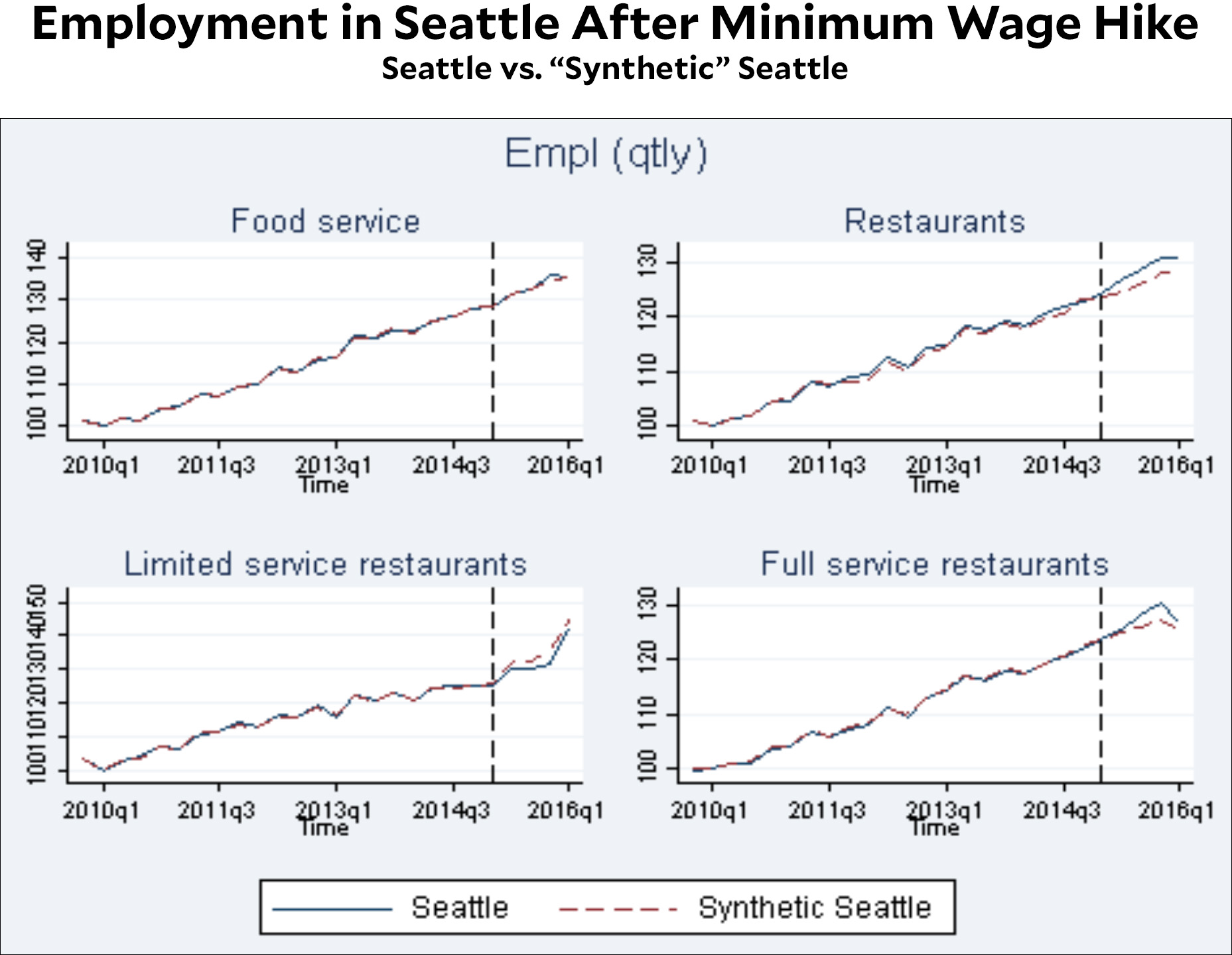Brad DeLong points to the latest study of employment in Seattle as it steadily increases its minimum wage to $15 per hour. As usual, what we want to know is not what absolute employment in Seattle looks like, but how it compares to a similar city with a lower minimum wage.
But what is a “similar” city? The obvious candidates are cities just over the border from Seattle. But those aren’t perfect, since they might have different demographics. The latest and greatest technique, then, is to create a “synthetic” city made up of various other places similar to Seattle. If you do this properly, you get a control that tells you how Seattle is doing compared to how it would be doing with a lower minimum wage. Here’s the result for the food service industry, which is a heavy user of minimum wage labor:

As you can see, synthetic Seattle is identical to real Seattle prior to the minimum wage hike. That suggests it’s a pretty accurate composite. After the minimum wage hike, they stay pretty similar. In fact, real Seattle has slightly higher employment. The obvious conclusion is that raising its minimum wage hasn’t depressed employment in Seattle at all. DeLong comments:
Low-end labor markets simply do not appear to work like competitive markets. Rather, they work like markets in which employers have substantial market power—and thus minimum wage laws have the same efficiency benefits as does natural-monopoly rate regulation. Why low-end labor markets do not appear to work like competitive markets is a very interesting—and, I believe, unsolved—question. But it is in all likelihood a fact to deal with.
I’d add an obvious caveat to this: it’s possible that a modestly higher minimum wage has little effect when the economy is doing well. We don’t know yet how employment in Seattle will respond when the economy turns down.


















